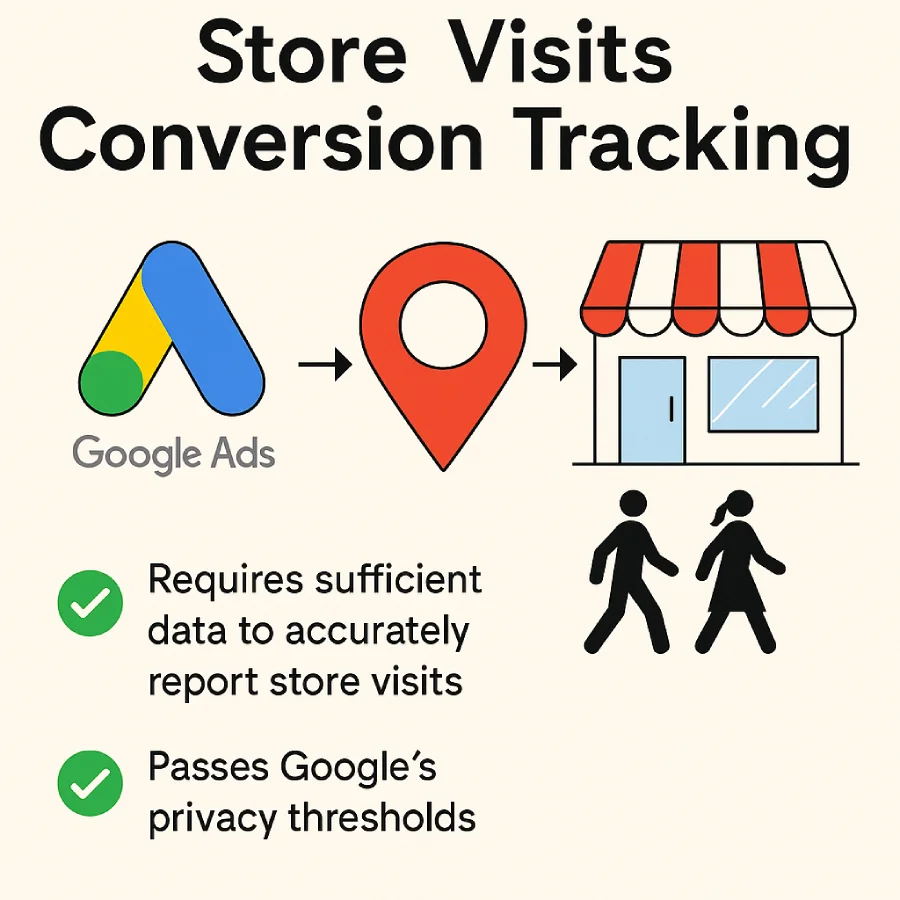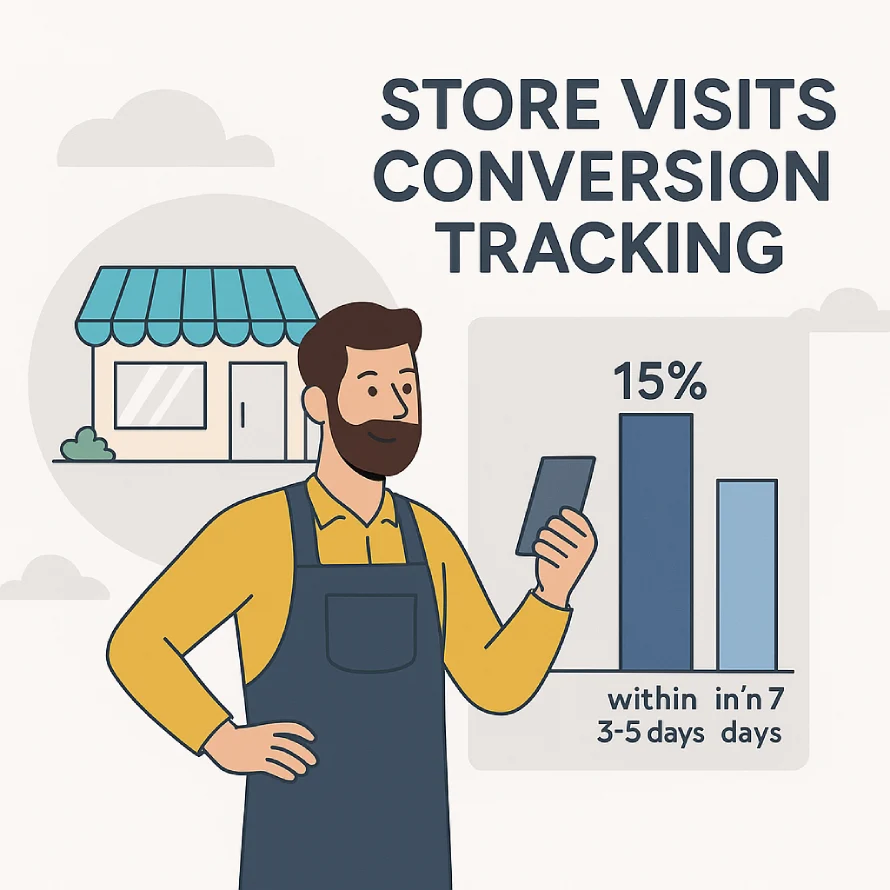The correct answer is “Store visits conversion tracking requires sufficient data to accurately report store visits and pass Google’s privacy thresholds.” Why is that the right choice, and why are the other options not correct?
When running ads for a local business, it’s not enough to track clicks or online sales. Many customers actually visit your store after seeing an ad. Google Ads uses store visits conversion tracking to measure this — but only if your account has enough data and meets privacy rules.
In our Miteart blog, I’ll break down why this is the correct answer, what the other options really mean, and how you can apply this knowledge in real campaigns. Let’s get started.

Table of Contents
Question
Which of the following describes the criteria for store visits conversion tracking?
- A) Store visits conversion tracking requires sufficient data to accurately report store visits and pass Google’s privacy thresholds.
- B) Store visits conversion tracking is available in all countries and regions as long as it’s not a sensitive business type or account.
- C) Store visits conversion tracking has no minimum impression or click requirements.
- D) Store visits conversion tracking is available for all business types, but only in certain countries.
Correct Answer
Details in voice:
A) Store visits conversion tracking requires sufficient data to accurately report store visits and pass Google’s privacy thresholds. ✅
Why This Answer Is Correct
You already got the right answer. Now you will know why it’s the right answer. Now let’s begin.
Google uses aggregated, anonymized location data from users who opt-in to location history to estimate when ad clicks lead to in-person visits.
- Large amount of data required → To ensure accuracy, your account needs thousands of ad interactions and sufficient store traffic.
- Privacy thresholds → Google ensures no individual can be identified, so reports only show once enough data is collected.
- Not all advertisers qualify → Small businesses or those without enough ad impressions may not get access.
This is why only certain accounts, with consistent traffic and large reach, are eligible.
Why The Other Options Are Wrong
Now we will see why the other option is incorrect. Now let’s go one by one.
B) Available in all countries and regions…
- ❌ Wrong because store visits tracking is not available in all regions. It’s only supported in select countries where Google has reliable mapping and location data.
C) No minimum impression or click requirements
- ❌ Wrong because Google requires high impression and click volumes to ensure reports are statistically accurate and private.
D) Available for all business types, but only in certain countries
- ❌ Wrong because not all business types qualify. For example, sensitive categories (health, religious centers, etc.) are excluded, even if they’re in supported countries.
Summary Table
| Option | Description | Correct? | Notes |
|---|---|---|---|
| A | Requires sufficient data + meets privacy thresholds | ✅ Yes | Official Google criteria |
| B | Available everywhere except sensitive accounts | ❌ No | Not supported in all regions |
| C | No minimum impression/click requirements | ❌ No | High traffic is required |
| D | Available for all business types in select countries | ❌ No | Sensitive categories excluded |
Real-Life Example

Meet David, who owns a chain of coffee shops in Chicago, Illinois.
- He runs Google Ads campaigns to promote “Morning Coffee Specials.”
- With thousands of ad impressions and steady customer visits, David qualifies for Store Visits Conversion Tracking.
- After a month, he sees that 15% of users who clicked his ad actually visited one of his shops.
👉 This helps David understand the offline impact of his ads, optimize ad spend, and even adjust store hours based on peak visit times.
But if David only had one small shop with low ad clicks, Google wouldn’t enable this feature because it wouldn’t meet accuracy and privacy thresholds.
Relevant Resources
- Google Ads Help – About Store Visits
- Skillshop – Google Ads Measurement Certification
- Google Support – Privacy in Conversion Tracking
Conclusion
Store Visits Conversion Tracking is a powerful tool for businesses with both online ads and physical locations. But it’s not for everyone — Google only enables it when your account has enough traffic, strong location accuracy, and passes strict privacy rules.
👉 For the exam, remember:
Eligibility depends on both sufficient data and privacy thresholds.
FAQ
Is store visits tracking available for small businesses?
Only if they have high ad volume and foot traffic. Many small businesses don’t qualify.
Does every country support store visits tracking?
No. It’s limited to specific countries where Google has reliable mapping and data coverage.
Can sensitive businesses (like hospitals) use this feature?
No. Google excludes sensitive categories for privacy and legal reasons.
How does Google protect privacy in store visit tracking?
Reports are aggregated, and no individual user’s location history is exposed.
